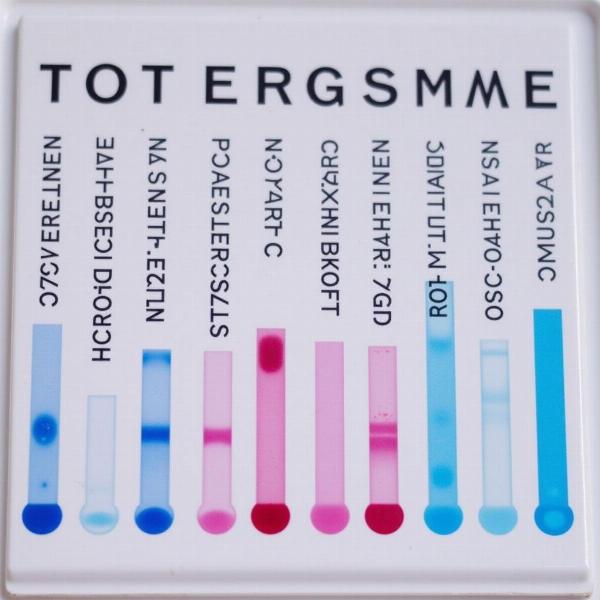ELISA, a common term in medical and scientific contexts, often leaves Hindi speakers searching for its meaning and significance. This article aims to demystify ELISA, explaining its meaning, procedure, applications, and importance in Hindi. We’ll delve into the various aspects of ELISA, ensuring a clear understanding for everyone, from students to professionals.
Understanding ELISA: What Does It Stand For?
ELISA stands for Enzyme-Linked Immunosorbent Assay. In Hindi, it is commonly referred to as एंजाइम-लिंक्ड इम्यूनोसॉरबेंट परख (Enzaim-Linked Imyunosarbent Parakh). It’s a widely used laboratory test to detect and quantify substances, primarily antibodies and antigens, in biological samples. Understanding its components helps clarify its functionality.
Breaking Down the Term: Enzyme-Linked Immunosorbent Assay
- Enzyme: Enzymes are biological catalysts that accelerate chemical reactions. In ELISA, they are linked to antibodies to generate a detectable signal.
- Linked: This refers to the chemical conjugation of the enzyme to the antibody.
- Immunosorbent: This describes the process where specific antigens or antibodies are immobilized onto a solid surface (usually a microplate).
- Assay: This term signifies a quantitative or qualitative test performed to measure the amount of a specific substance.
How Does an ELISA Test Work?
The ELISA procedure involves a series of steps that exploit the specific binding between antibodies and antigens. This interaction allows for the detection and quantification of the target substance.
- Coating: The microplate wells are coated with an antigen or antibody specific to the target substance.
- Blocking: A blocking agent is added to prevent non-specific binding.
- Sample Addition: The sample being tested is added to the wells. If the target substance is present, it will bind to the coated antigen or antibody.
- Washing: Unbound substances are washed away.
- Enzyme-Linked Antibody Addition: An enzyme-linked antibody specific to the target substance is added. This antibody binds to the target substance if present.
- Washing: Unbound enzyme-linked antibodies are washed away.
- Substrate Addition: A substrate is added, which reacts with the enzyme, producing a color change.
- Measurement: The intensity of the color change is measured, which is proportional to the concentration of the target substance.
 ELISA Test Results
ELISA Test Results
Applications of ELISA in Healthcare and Beyond
ELISA tests find widespread applications in various fields, including:
- Diagnosis of infectious diseases: HIV, hepatitis B and C, dengue fever, etc.
- Detection of autoimmune diseases: Rheumatoid arthritis, lupus, etc.
- Monitoring drug levels in the blood: Therapeutic drug monitoring.
- Food safety testing: Detection of food allergens and contaminants.
- Pregnancy testing: Detecting the presence of human chorionic gonadotropin (hCG).
ELISA Meaning in Hindi: Importance in Medical Diagnosis
In India, ELISA tests play a crucial role in diagnosing various diseases. Their affordability and relatively quick turnaround time make them invaluable in resource-constrained settings. Dr. Anya Sharma, a leading infectious disease specialist in Delhi, states, “ELISA tests are indispensable in our fight against infectious diseases. Their ease of use and accessibility make them a powerful tool for early diagnosis and timely intervention.”
Different Types of ELISA
Several ELISA formats exist, each designed for specific applications:
- Direct ELISA: The simplest format, where the antigen is directly coated on the plate and detected by an enzyme-linked antibody.
- Indirect ELISA: Uses a secondary enzyme-linked antibody to detect the primary antibody bound to the antigen.
- Sandwich ELISA: Two antibodies are used to “sandwich” the antigen, increasing sensitivity and specificity.
- Competitive ELISA: The target antigen competes with a labeled antigen for binding to the antibody.
Conclusion: ELISA’s Significance in Modern Diagnostics
Understanding “ELISA meaning in Hindi” is crucial for navigating the world of medical and scientific advancements. This comprehensive guide has covered various aspects of ELISA, from its basic principles to its diverse applications. ELISA’s role in disease diagnosis, drug monitoring, and various other fields makes it an indispensable tool in modern diagnostics.
FAQ
- What is the full form of ELISA? ELISA stands for Enzyme-Linked Immunosorbent Assay.
- What is ELISA used for? ELISA is used to detect and quantify substances, primarily antibodies and antigens, in biological samples.
- How long does an ELISA test take? The time required for an ELISA test can vary depending on the specific test, but typically ranges from a few hours to a day.
- Is ELISA a reliable test? ELISA tests are generally considered reliable, but their accuracy can be influenced by various factors.
- Where can I get an ELISA test done? ELISA tests can be performed in diagnostic laboratories and hospitals.
- What is the cost of an ELISA test in India? The cost can vary depending on the specific test and the facility.
- What are the limitations of ELISA? False positive or false negative results can occur due to various factors, including cross-reactivity and improper handling.
Connect with Meaning-Hindi.in for Your Translation Needs
Meaning-Hindi.in is your trusted partner for professional Hindi translation services. We specialize in various domains, including medical and technical translation, ensuring accurate and culturally sensitive translations. Whether you need to translate medical documents, research papers, or technical manuals, our team of expert linguists can deliver high-quality translations tailored to your specific needs. Contact us today for a free quote! Email: [email protected], Phone: +91 11-4502-7584. Meaning-Hindi.in provides comprehensive language solutions for businesses and individuals alike.